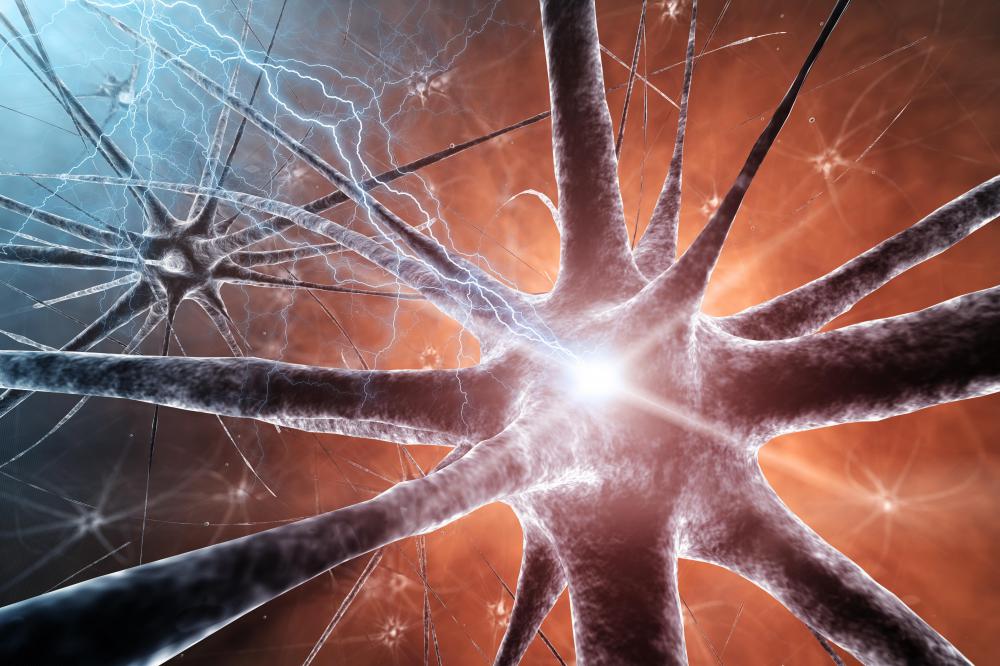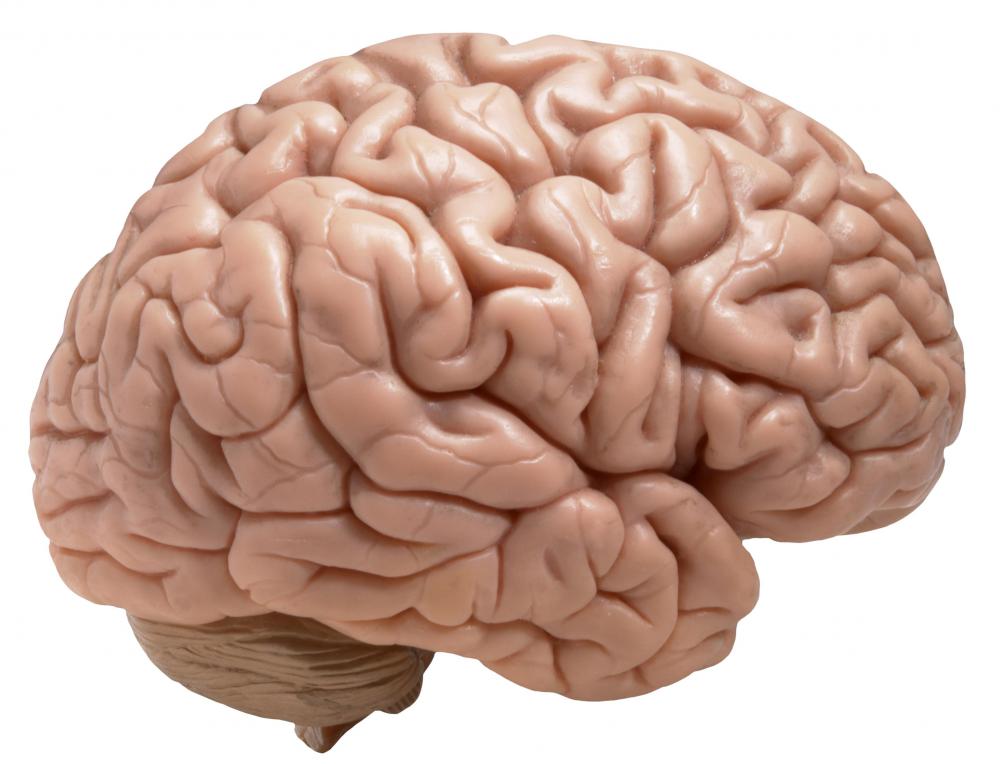At WiseGEEK, we're committed to delivering accurate, trustworthy information. Our expert-authored content is rigorously fact-checked and sourced from credible authorities. Discover how we uphold the highest standards in providing you with reliable knowledge.
What Is the Relationship between Neurotransmitters and Addiction?
The relationship between neurotransmitters and addiction is founded in the addictive substance's ability to interrupt neurotransmitter brain activity. Neurotransmitters are message carriers sent between a neuron and a receptor. Pain, pleasure, boredom, and other messages travel by neurotransmitter. Drugs, alcohol, and other addictive substances not only prevent appropriate neurotransmitter activity, but also create brain activity that changes behavior.
Dopamine is a primary neurotransmitter impacted by addiction. This neurotransmitter affects movement control, emotions, pleasure, and pain. Different drugs can stimulate or inhibit the brain's dopamine receptors. This interferes with the neurotransmitter's ability to work effectively.

Cocaine is one example of a drug that impacts dopamine action in the brain. Using cocaine increases dopamine levels and creates a temporary euphoria. Each drug used either blocks or stimulates the neurotransmitters, which impacts the user's thoughts and behaviors. Some drugs, including amphetamines, disrupt the normal flow of the brain's neurotransmitters. Other drugs bypass the neurotransmitter system completely and go directly to receptors.

When dopamine neurotransmitters are consistently overstimulated through drug use, the brain stops creating dopamine on its own. This is called desensitization, often referred to as drug tolerance. Desensitization takes weeks to months to reverse itself after the drug use is eliminated.
Different drugs have different connections between neurotransmitters and addiction. For example, amphetamines increase dopamine release, and cocaine binds to the neurotransmitter,reducing dopamine release, yet both drugs produce feelings of happiness and energy. The level and speed of changes in brain chemicals with drug use also have an impact on neurotransmitters as well as addiction.

Due to the effect of certain drugs on neurotransmitters and addiction, some drugs are considered more addictive than others. Crack cocaine and opiates including heroin, morphine, and prescription painkillers are considered extremely addictive. Marijuana is considered much less addictive. Nicotine is considered the most addictive of the psychoactive drugs.

Chronic drug use, as seen in addiction, has an impact on the brain's function. Neurotransmitters and addiction are studied in an effort to understand their relationship and find a cure. Research has discovered chronic drug use changes the frontal cortex of the brain. This is the area responsible for understanding consequences of actions. Not learning from mistakes, not worrying about risk, and not caring about consequences are all byproducts of the relationship between neurotransmitters and addiction.
AS FEATURED ON:
AS FEATURED ON:














Discussion Comments
If I understand correctly, an addiction basically takes over the functions of neurotransmitters. They don't function normally because they start to rely on the drug of choice for that. Right?
@ZipLine-- That's because addiction has to do with the reward system (dopamine) in our brain and we rely on this for survival. We have been using the reward system since existed.
The reward system responds differently to certain actions and substances. For example, our neurotransmitters respond to sex and eating because these are actions we rely on for survival. So when we take a substance that has the same or similar affect, it's not out of the ordinary for us. We crave that and look forward to it.
You will know if your neurotransmitters are being blocked or stimulated by a substance when you don't have access to it. The greater the addiction, the more the symptoms. Everyone responds differently to addiction, but you might get moody or aggressive, you might have headaches, lose your appetite or your sleep patterns may change. Just as the addiction rewards the neurotransmitters, not having it is like a punishment for the brain.
I was addicted to prescription pain killers for a short while after my surgery. I was in a lot of pain at the time and felt that I could not cope without medication. I took it everyday for two months and I was not even thinking if my pain has lessened enough to bear without drugs.
I only realized that I was addicted when my doctor told me to come off of them and I experienced many withdrawal symptoms.
It's unfortunate that addiction sneaks up so quickly and without the person even noticing. Why can't we tell that changes are taking place in our neurotransmitters?
Post your comments